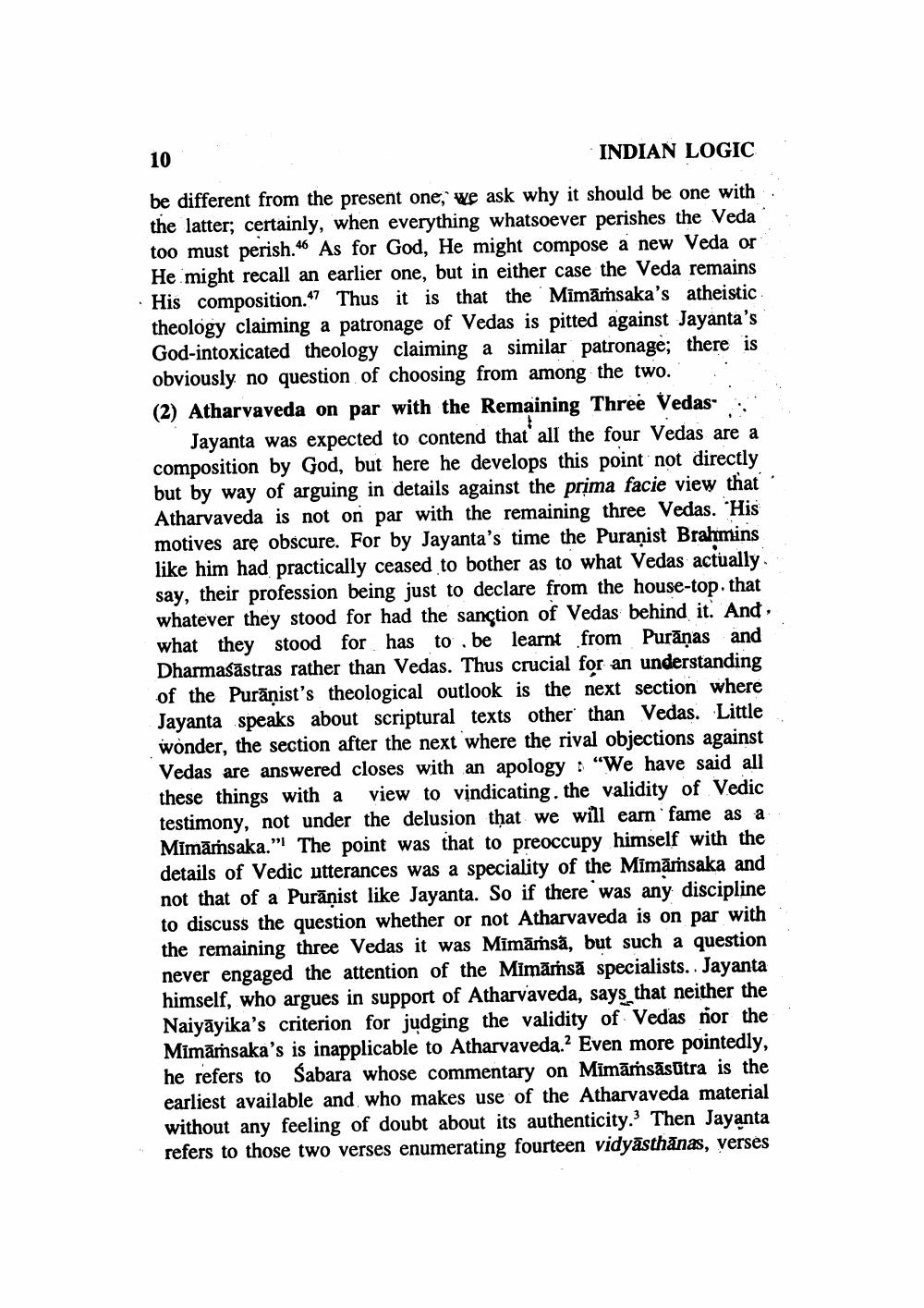________________
10
INDIAN LOGIC
be different from the present one, we ask why it should be one with the latter; certainly, when everything whatsoever perishes the Veda too must perish." As for God, He might compose a new Veda or He might recall an earlier one, but in either case the Veda remains His composition." Thus it is that the Mimärsaka's atheistic theology claiming a patronage of Vedas is pitted against Jayanta's God-intoxicated theology claiming a similar patronage; there is obviously no question of choosing from among the two. (2) Atharvaveda on par with the Remaining Three Vedas
Jayanta was expected to contend that all the four Vedas are a composition by God, but here he develops this point not directly but by way of arguing in details against the prima facie view that Atharvaveda is not on par with the remaining three Vedas. "His motives are obscure. For by Jayanta's time the Puranist Brahmins like him had practically ceased to bother as to what Vedas actually. say, their profession being just to declare from the house-top. that whatever they stood for had the sanction of Vedas behind it. And. what they stood for has to be learnt from Puranas and Dharmasastras rather than Vedas. Thus crucial for an understanding of the Puranist's theological outlook is the next section where Jayanta speaks about scriptural texts other than Vedas. Little wonder, the section after the next where the rival objections against Vedas are answered closes with an apology: "We have said all these things with a view to vindicating, the validity of Vedic testimony, not under the delusion that we will carn fame as a Mimärhsaka." The point was that to preoccupy himself with the details of Vedic utterances was a speciality of the Mimämsaka and not that of a Puranist like Jayanta. So if there was any discipline to discuss the question whether or not Atharvaveda is on par with the remaining three Vedas it was Mimärhsa, but such a question never engaged the attention of the Mimämsä specialists. Jayanta himself, who argues in support of Atharvaveda, says that neither the Naiyayika's criterion for judging the validity of Vedas nor the Mimärhsaka's is inapplicable to Atharvaveda. Even more pointedly, he refers to Sabara whose commentary on Mimämsäsutra is the earliest available and who makes use of the Atharvaveda material without any feeling of doubt about its authenticity. Then Jayanta refers to those two verses enumerating fourteen vidyästhānas, verses




